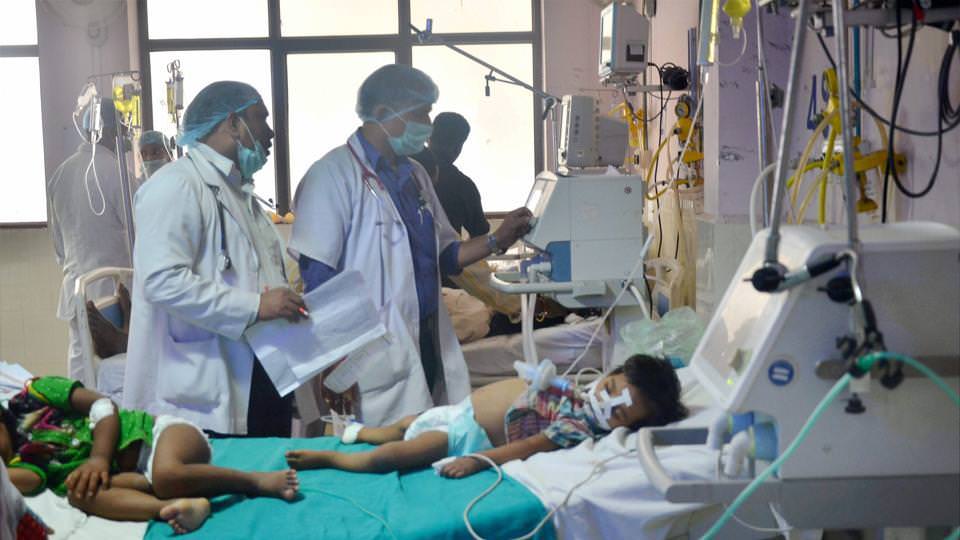Baba Raghav Das (BRD) Medical College tragedy has become a question of importance that for how long can such issues be tolerated than being avoided? As the Allahabad High Court waits for Uttar Pradesh (UP) government’s response to the Public Interest Litigation (PIL), UP Chief Minister, Yogi Adityanath will be visiting Gorakhpur today again, to assess the situation.
As of Friday, 18 August, about 70 children have lost their lives, in what can only be termed as an awakening call for the state. The cause for the tragedy remains a question, as speculations and blame games still continue about what has caused such a major medical mishap. Are we asking the right questions? Or is it the right time to raise questions?
While most of the information surrounding the incident has been causing much confusion than clarity on the matter, UP seems to be in major turmoil. The state is already suffering from a flood crisis, and the issue in Gorakhpur is not helping the state authorities. Despite aid from the central government, deeper issues regarding the state’s long-standing problems of education, healthcare, employment etc. are being questioned yet one more time.
The road to recovery is not an uphill task. It is high time we realize the fact that for a long while now human lives have been taken for granted. No matter what the authorities have to justify or the media has to project or what the public opinion is, it remains to be understood that basic humans needs, such as adequate healthcare, need an immediate reform. Otherwise, we will always be too late to reverse the clock.
In a report on Friday, Indian Medical Association (IMA) suggested measures which can avoid a similar situation in the future. The association provided inputs to improve the state’s medical policy, asking for options such as advance payment structures, backup for essential drugs and oxygen and cost-cutting where applicable.
Earlier this week, Bharatiya Janata Party (BJP) leader and the member of Parliament from Sultanpur, Varun Gandhi provided funds worth Rs. 5 crore towards the infrastructure development in the BRD Hospital.
In his statement, Gandhi also mentioned, “Additional donations and collections from CSR (Corporate Social Responsibility) funding will be utilised for purchase of equipment and laboratories for the [paediatric] wing.” While corporate firms in India have continued to increase their investments in hunger, poverty, and healthcare — by 44% (2,1055.44 crore) in 2015-16 from 1,446.83 crores in 2014-15, there needs to be an emphasis on creating a more inclusive model to tackle health problems in India.
The core issue will never really get resolved just by proper assessments. We have to ensure that such incidents don’t occur ever again. They are an ugly side to India’s healthcare problems also reflecting the need of an appropriate healthcare policy to systematically change the ‘basic’ medical care in our Country.
Thank you for reading the story until the very end. We appreciate the time you have given us. In addition, your thoughts and inputs will genuinely make a difference to us. Please do drop in a line and help us do better.
Regards,
The CSR Journal Team
Subscribe


